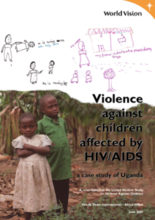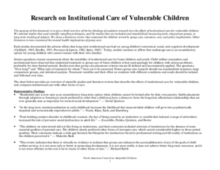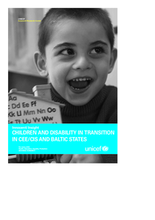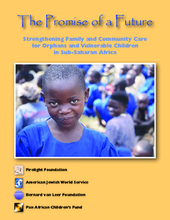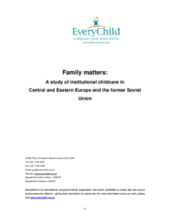Displaying 721 - 730 of 771
This report reviews the faltering progress made in childcare reform across Central and Eastern Europe and the former Soviet Union over the 15 years since the ‘orphanages’ of Romania were revealed to the world.
Report documenting participatory research conducted on violence against children affected by HIV/AIDS in Uganda. Particular focus on the stigmatisation and discrimination.
A brief literature review of the key findings of academic research into the effects of institutional care for vulnerable children. Contains information on the negative effects of institutional care.
Report presents and analyzes new research and data around children with disabilities in the region, the effects of institutional care, and the need for family support services.
Reports on the status of children living in residential facilities in Nepal. Includes detailed survey instruments in appendicies.
Describes and analyses abuse in institutional care using a case study of a home for girls in the developed world.
This report presents the survey Kevin Browne and colleagues conducted in 33 European countries to identify the number and characteristics of children less than three placed in residential care without their parents for more than three months during the year ending December 31, 2003. The purpose was to assess the rate and cost of residential care as a response to children in adversity.
A brief document advocating for the strengthening and support of community based responses to children and families affected by HIV/AIDS in Africa.
This paper analyses the financial costs of residential services as compared to community-based services in Moldova. It also addresses the negative effects of institutional care on the well-being of children and society as a whole.
A report discussing the advent and perpetuation of institutional care in Central and Eastern Europe and the Former Soviet Union prior to and since the end of the communist regime. It also provides examples of family-based care as models of care to substitute institutional care and offers recommendations to donors, NGOs and governments for child care reform based on their experience in CEE and FSU.


